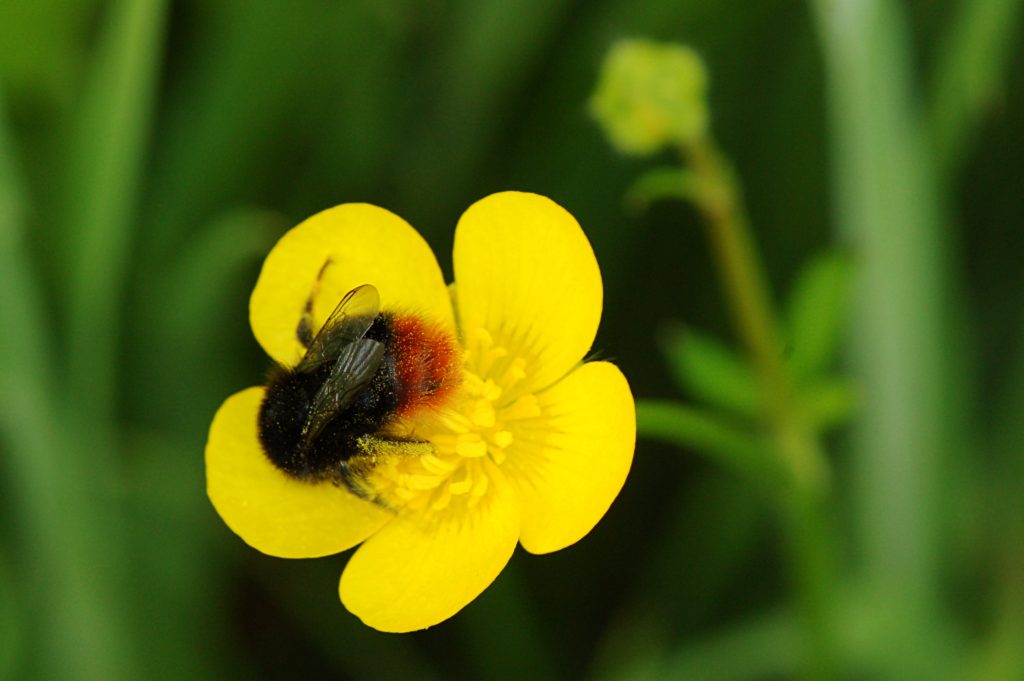We have just started a new collaborative project between the University of Exeter’s Environment and Sustainability Institute (ESI) and Cornwall Area of Outstanding Natural Beauty (AONB). This project will support and develop the AONB’s new pollinator conservation initiative and extend the real-world impact of our bee behaviour and population models in informing landscape-scale management recommendations.
This is an excellent opportunity for us to provide a high profile case study to illustrate the range of potential applications for our bee models that simulate the behaviour, colony growth and survival of wild and managed pollinators in realistic landscapes. We will be building upon the previous success of BEEHAVE by utilising our recently published BEESCOUT model that simulates forage resources and bee landscape exploration, and the brand new Bumble-BEEHAVE model that simulates a population of multiple bumblebee colonies and species.
The ESI is a cutting edge interdisciplinary institute that focuses on solutions to the problems of environmental change and is based at the University of Exeter’s Penryn Campus in Cornwall, UK. Cornwall AONB covers nearly a third of Cornwall with nearly three quarters of it agricultural land, affording a unique opportunity to specifically target pollinator-friendly management. We are collaborating with Cornwall AONB to achieve their “Investing in Nature” policies outlined in their 2016-2021 Management Plan, by using our set of bee models as decision support tools and by providing the expertise to collaboratively, prioritise land areas which may have the biggest impact for wild pollinators.
Our aim is to extend the uses and impact of Bumble-BEEHAVE and BEESCOUT by investigating how potential landscape management (such as Countryside Stewardship Schemes for example) could affect the resources available to pollinators which effect their colony survival. We will then be able to make collaborative management recommendations with Cornwall AONB to enhance the Cornish landscape for bees, other pollinators, biodiversity conservation overall.
Dr Grace Twiston-Davies is the NERC Knowledge Exchange Researcher on the project “Using bee models to support decision-making in the implementation of the National Pollinator Strategy in Cornwall”. She is a Postdoctoral Research Associate at the University of Exeter’s Environment and Sustainability Institute (ESI) and has previously worked on the Bumble-BEEHAVE model as part of the BBSRC funded project “An integrated model for predicting bumblebee population success and pollination services in agro-ecosystems”.

